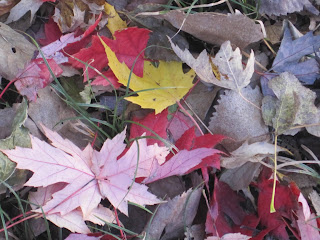The last idea we will explore from Leaving a Trace*, is the idea that vital to the process of writing memoir is the decision of what to leave out. Since I'm writing a memoir this caught my attention.
It occurred to me this also may be good advice for the rest of my life. What would enhance the quality of my life if it was not there?
Currently I'm trying to let go of clothes that no longer fit because I've gained weight. Even when they are way too tight when I try them on, I want to save them. I forget that someone else may need them.
In 2016 and 2017, I couldn't gain weight no matter how much I ate. Then I had the procedure (AKA operation) suggested for NPH (Normal Pressure Hydrocephalus). After a few months, I started to gain weight. It felt so good to feel healthy again that I kept eating. Now I would like to lose ten or more pounds but only if I can do it and stay healthy.
Besides clothes that are too tight, I'm trying to let go of the idea that I can eat anything I want. It is a surprisingly difficult attitude to shake. The omnipotent feeling of eating everything I wanted and not suffering any consequences is hard to relinquish. It was like saying, "Look at me - I can eat anything I want and not gain weight. I'm special." Of course I didn't think that consciously but unconsciously that attitude must have been there otherwise this wouldn't be such a struggle.
Letting go of eating anything I want every time I feel like it is sort of difficult. I've started to treat myself to a cup of hot tea when the urge comes to eat. Most of the time it helps.
It is much easier to toss a blouse into the Goodwill bag than it is to convince myself that I might be eating out of habit and not hunger; only eat one Almond Bite instead of fifteen. I try to switch my attention to the question of what are the necessary details I need to include in memoir describing my experience in psychoanalysis? If there are things you would like to know about my time in psychoanalysis, let me know. If you've always been curious about what goes on in an analytical session and wanted to ask questions, here's your chance! I probably won't answer your question here but it might be included in the book!
What do you need to let go of? What is the most difficult for you to shed - material things or attitudes? I'd love to know.
CLUE: Think of the last time you let go of something. Did you give it away or just throw it out? How did you decide to take this action? Then remember the feelings you had after you let go. If they were good feelings, congratulate yourself for a wise move. If you wish you had whatever you took leave of, devise a plan to either get it back or replace it. Then let me know.
Thanks for exploring the mystery - Nicky Mendenhall
*Leaving a Trace by Alexandra Johnson (2001)
The image of beautiful fall leaves is completely unfiltered and was received during a walk on Sunday, October 28, 2018. I love it so much that I shared it on Instagram.






















